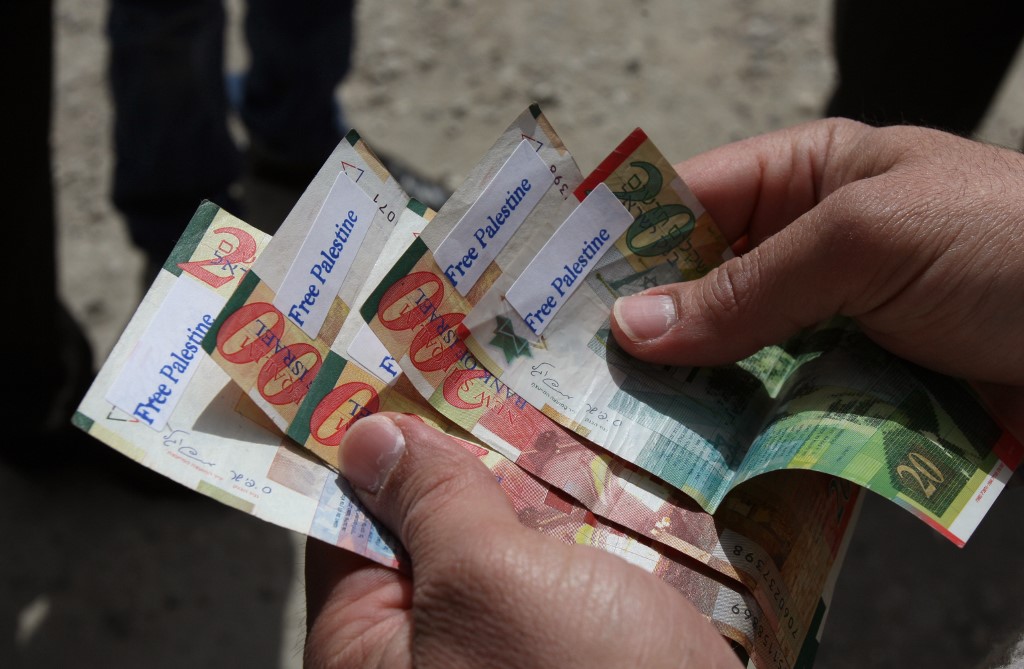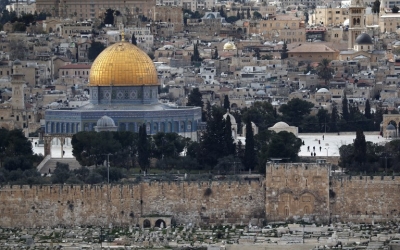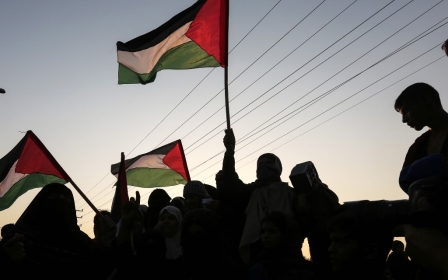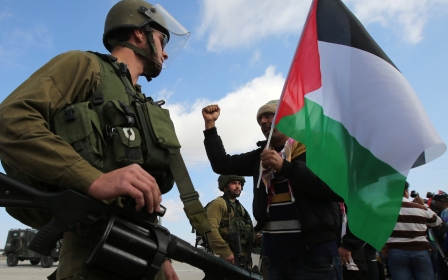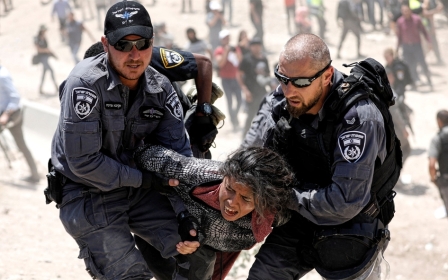A transition from apartheid could heal, not destroy Israel
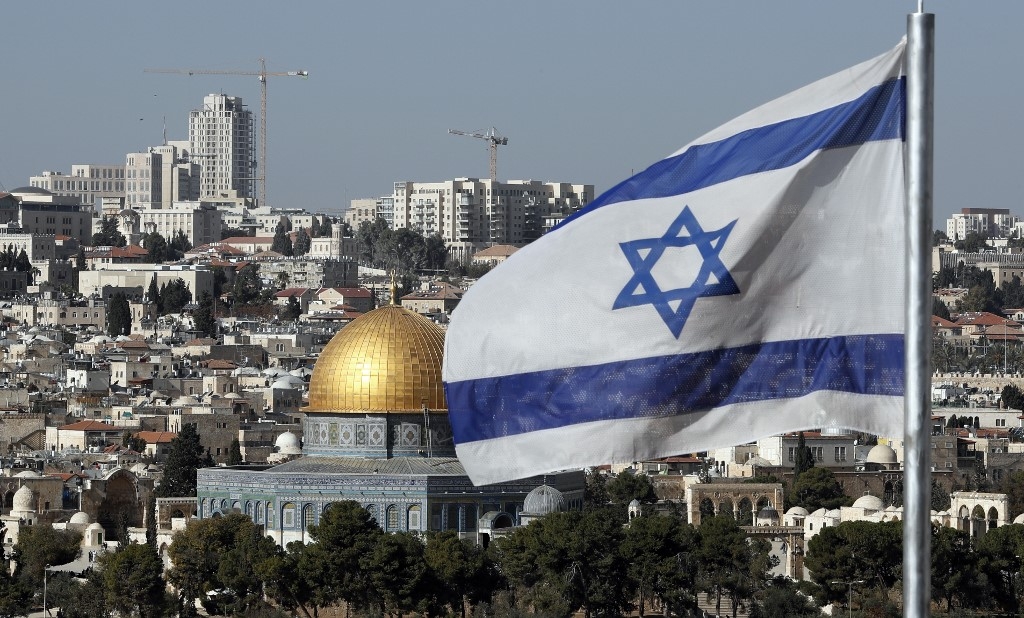
People tend to perceive Israel’s domination of Palestinians mainly in governmental and military terms. Images of soldiers, xenophobic Knesset legislators, and right-wing politicians dictate this perception.
But in fact, the systematic oppression of Palestinians from the Mediterranean Sea to the Jordan River is an ongoing settler-colonial project based on the everyday mobilisation of Jewish citizens. From family life, to the educational system, to conscription, to media and popular culture, Israelis are committed to the subjugation of Palestinians by default.
Not just ideologically, but also emotionally, Israelis are conditioned to conceive of Palestinian people in inhumane terms. That is Israel’s secret weapon - not its nukes.
Zionist goals
Some may question whether this political culture was simply derailed from its morality at some point, or whether it is more ominously the result of a national project wrongly conceived from its very beginning. Though I side with the latter interpretation, the point is elsewhere.
New MEE newsletter: Jerusalem Dispatch
Sign up to get the latest insights and analysis on Israel-Palestine, alongside Turkey Unpacked and other MEE newsletters
The massive embodiment of Zionist practical goals by the overwhelming majority of Israelis in their daily activities leaves no room for speculation; the important, albeit fringe, action of progressive Israelis cannot possibly bring about change.
One engages in progressive action because there may still be small wins that could benefit the oppressed, and perhaps because of the sense of dignity that comes alongside it. Progressive Israelis do manifest such values, but altogether they lack the numbers and the traction to actually change their society.
While Israel's cultural space is suffocated by a narrative of hatred and false fear, it is nonetheless well-equipped to face a process of structural transformation
The realisation that change from within is no more than wishful thinking ought to push the rational mind to support the alternative: change instigated from the outside.
This doesn’t mean one should not support the activities of progressive Israelis, but is intended rather to contextualise their action, so as to understand its value and limited impact.
Pressure from the outside, via non-violent action, is what the boycott, divestment and sanctions (BDS) movement is all about. This sort of international pressure worked in apartheid South Africa, and it is working in Israel. Otherwise, why would the Israeli government invest so much time and money fighting it?
Israel claims that the real goal of the BDS movement is to destroy Israel - a claim that has resonated with many well-meaning people around the world. It is a powerful image, and Israel exploits it. But this idea rests on the assumption that Israeli society is fragile, in constant crisis, and staring into the abyss of obliteration. Nothing could be further from the truth.
Commercial relations
As of 2019, Israel was ranked 17th in the Global Firepower index, which rates countries by military capacity, an extraordinary feat for such a small country.
Yet, Israel’s strength rests not only on its military might, but also on its stable and growing economy. According to Trading Economics, Israel has had average GDP growth above four percent for the last two decades, low inflation rates and an unemployment index currently below four percent.
The country maintains a vast network of commercial and industrial relations around the world, primarily based on communications, information technologies and the security industry. A great deal of this forte derives from the stolen Palestinian assets - mainly, but not only, land - on which Israel relied in its formative years, starting from 1948.
As the renowned Palestinian scholar Salman Abu-Sitta exposed in his research: “The abandoned Palestinian fields, orchards, vineyards, homes, shops, factories and businesses provided housing for many of the 684,000 Jewish immigrants who settled in the country from … 1948 to … 1951 and provided employment and economic sustenance for them.”
In 1958, American-Jewish scholar Don Peretz wrote that the “abandoned [Palestinian] property was one of the greatest contributions towards making Israel a viable state”. Evidently, Israel’s economic power also derives from the continuing extraction of privilege from the 1967-colonised West Bank, Gaza and East Jerusalem.
In the international arena, Israel is unconditionally supported by the US, while Europe rejects public calls to ban Israeli goods produced in the West Bank. Israel also enjoys the funding and political backing of strong Jewish communities overseas, most notably the Jewish American leadership, which has significant influence on US politics.
On the social level, Israelis are not easily frightened by challenges. In addition, Israel has no formal constitution that could function as a barrier to political change, and without overstating its input to a pro-civil rights agenda, Israel’s Supreme Court has shown it has some potential to adapt and contribute to structural change.
In other words, while the Supreme Court has no record of ruling for the Palestinians, it has some record of ruling in favour of human and civil rights for the Israelis. This could be taken to mean that the court would not necessarily be a barrier in a process of internal change in the Jewish society.
Structural transformation
While Israel’s cultural space is suffocated by a narrative of hatred and false fear, it is nonetheless well-equipped to face a process of structural transformation. Its political institutions are not inflexible, and change within them depends mainly on political will.
Economically, change would mean a redistribution between Israelis and Palestinians, but certainly not chaos. I have no illusions that a decolonisation process that entails giving up privileges would be easy, but Israel’s social and economic infrastructure would not collapse in such a process, spurred by international pressure.
Whatever political model is pursued - and I personally believe the best goal would be one democratic state for all - and whatever the new entity would call itself, it would enjoy broad international support if this change were to be based on justice, and on the simple principle of “one person, one vote”.
In the healing process, Israelis could leave behind the social training that forges them into everyday oppressors.
Jewish identity may, too, be rescued from the dark depths into which Zionism has thrown it - as seen via the image of an Israeli prime minister endorsing neo-Nazi European political parties. Indeed, change could heal, rather than destroy, Israel.
The views expressed in this article belong to the author and do not necessarily reflect the editorial policy of Middle East Eye.
This article is available in French on Middle East Eye French edition.
Middle East Eye delivers independent and unrivalled coverage and analysis of the Middle East, North Africa and beyond. To learn more about republishing this content and the associated fees, please fill out this form. More about MEE can be found here.



